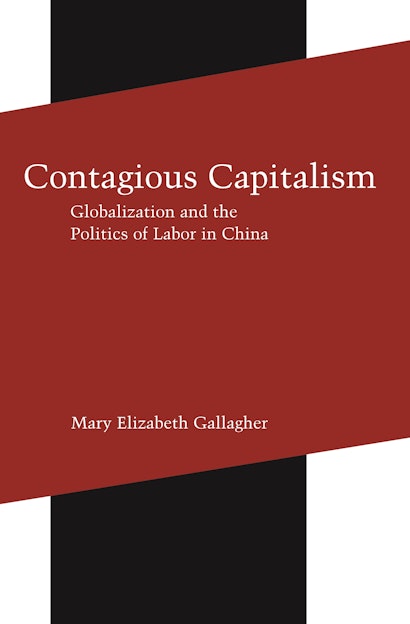Contagious Capitalism: Globalization and the Politics of Labor in China


Paperback
ebook (EPUB via app)
- Sale Price:
- $27.30/£22.40
- Price:
-
$39.00/£32.00 - ISBN:
- Published:
- Jun 27, 2011
- Copyright:
- 2005
- 7 line illus. 8 tables.
30% off with code PUP30
ebook (PDF via app)
-
Audio and ebooks (EPUB and PDF) purchased from this site must be accessed on the
91ÌÒÉ« app. After purchasing, you will receive an email with
instructions to access your purchase.
About audio and ebooks - Request Exam Copy
One of the core assumptions of recent American foreign policy is that China’s post-1978 policy of âreform and opennessâ will lead to political liberalization. This book challenges that assumption and the general relationship between economic liberalization and democratization. Moreover, it analyzes the effect of foreign direct investment (FDI) liberalization on Chinese labor politics.
Market reforms and increased integration with the global economy have brought about unprecedented economic growth and social change in China during the last quarter of a century. Contagious Capitalism contends that FDI liberalization played several roles in the process of China’s reforms. First, it placed competitive pressure on the state sector to produce more efficiently, thus necessitating new labor practices. Second, it allowed difficult and politically sensitive labor reforms to be extended to other parts of the economy. Third, it caused a reformulation of one of the key ideological debates of reforming socialism: the relative importance of public industry. China’s growing integration with the global economy through FDI led to a new focus of debate—away from the public vs. private industry dichotomy and toward a nationalist concern for the fate of Chinese industry.
In comparing China with other Eastern European and Asian economies, two important considerations come into play, the book argues: China’s pattern of ownership diversification and China’s mode of integration into the global economy. This book relates these two factors to the success of economic change without political liberalization and addresses the way FDI liberalization has affected relations between workers and the ruling Communist Party. Its conclusion: reform and openness in this context resulted in a strengthened Chinese state, a weakened civil society (especially labor), and a delay in political liberalization.